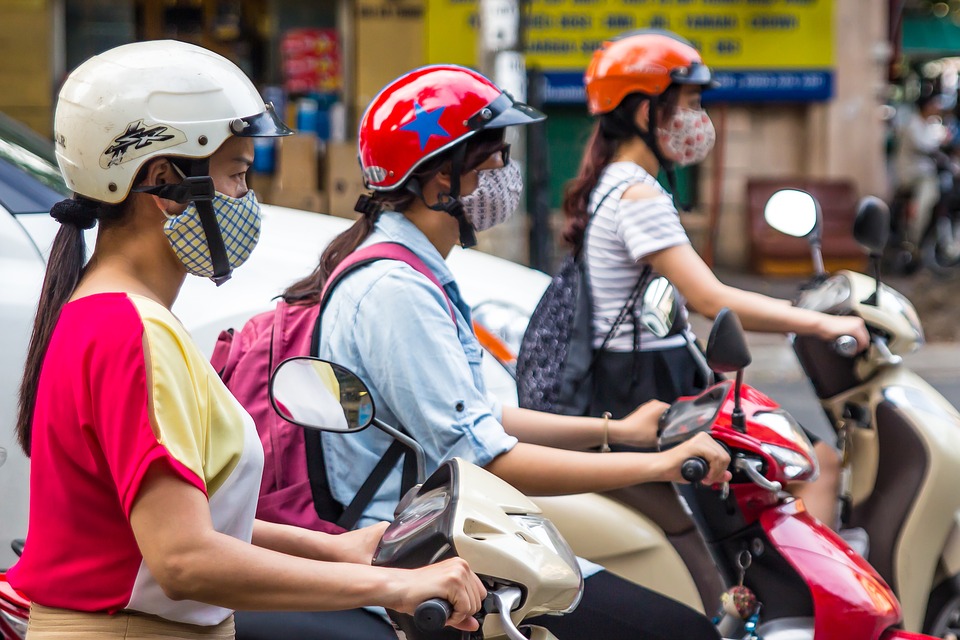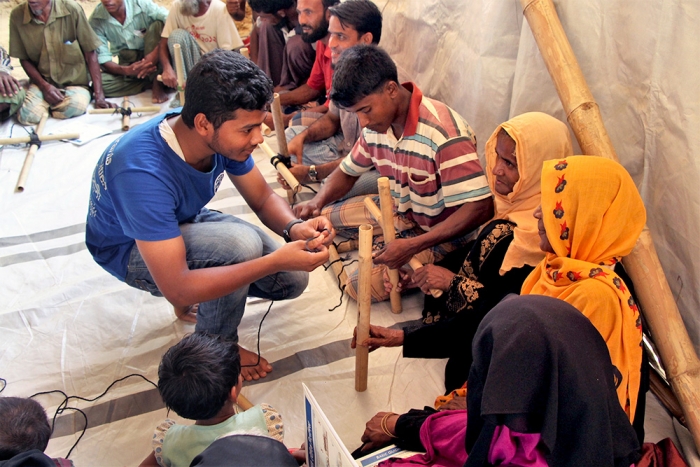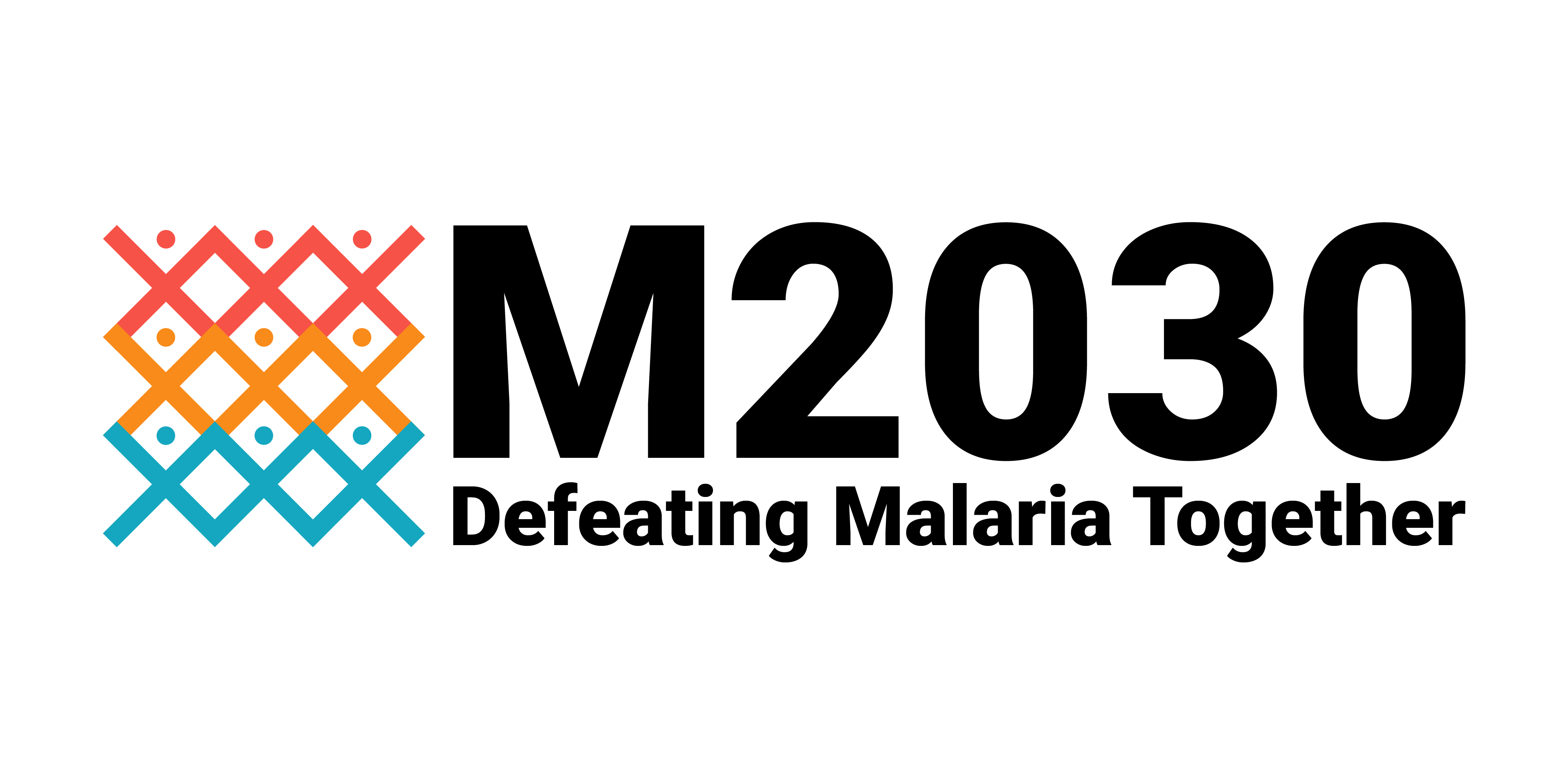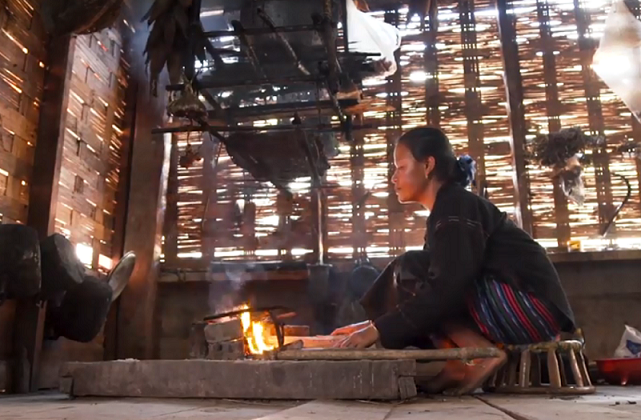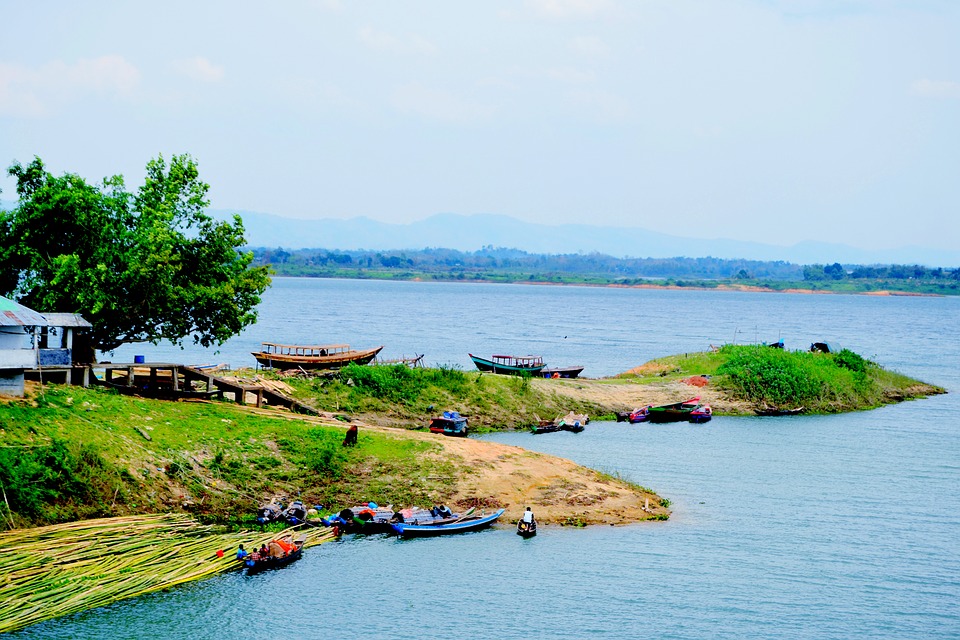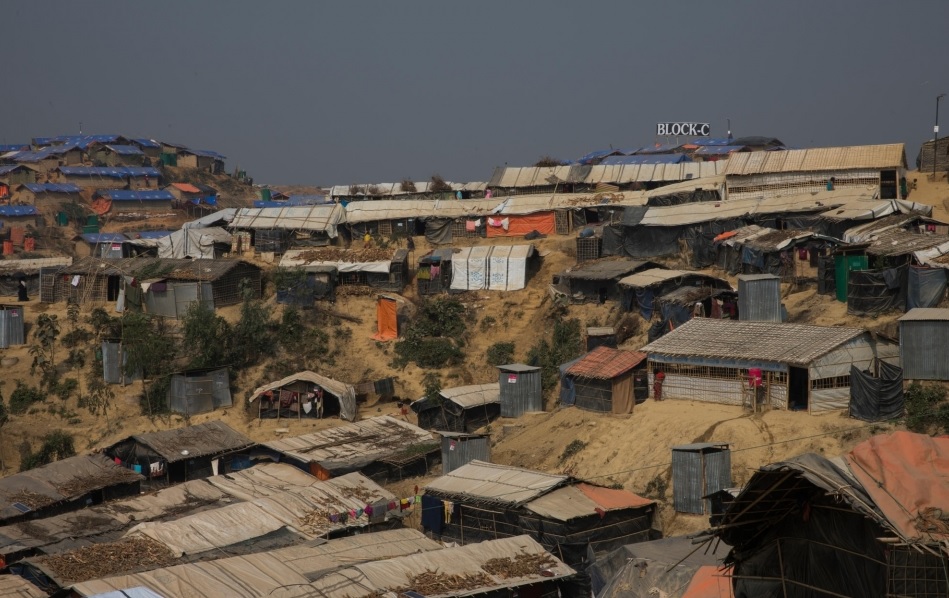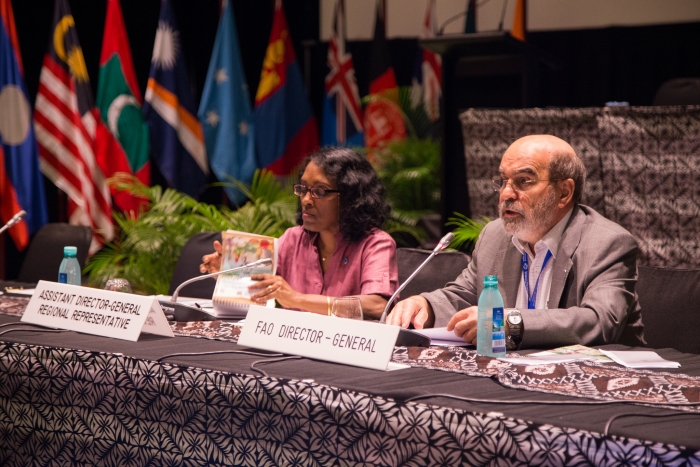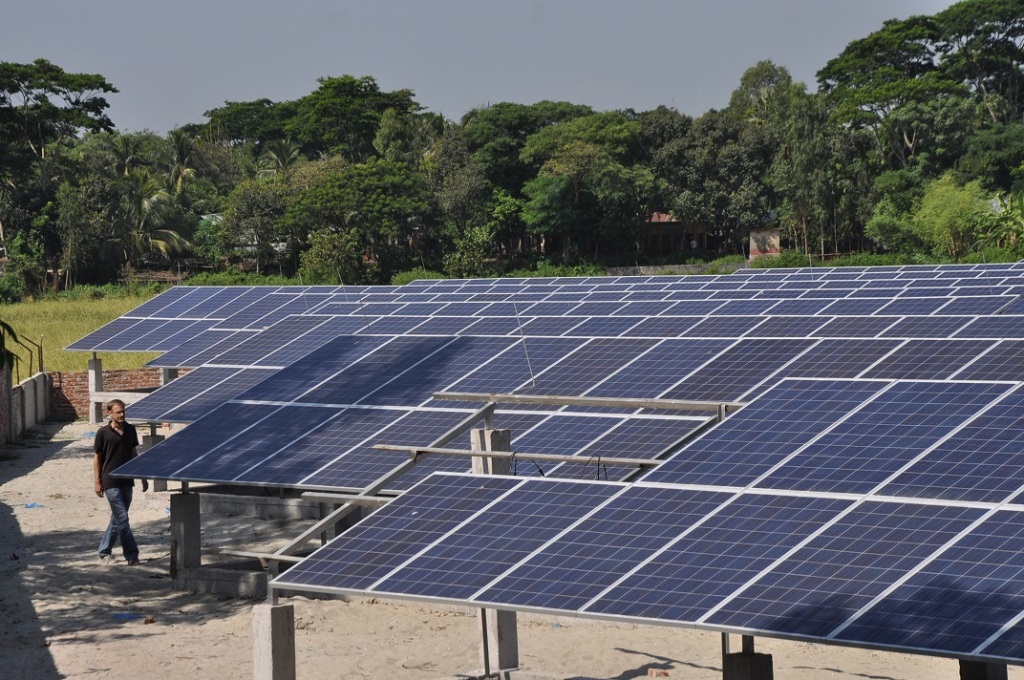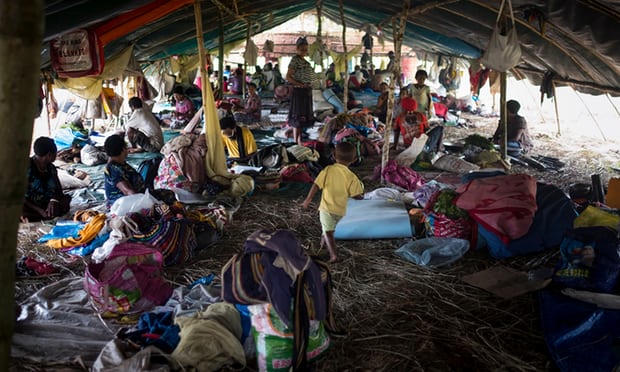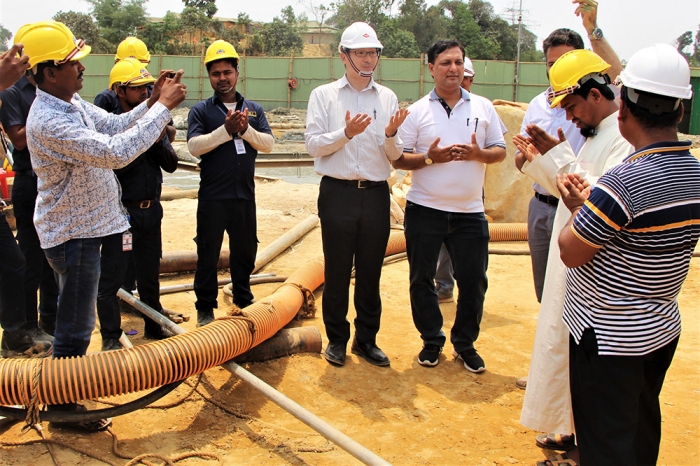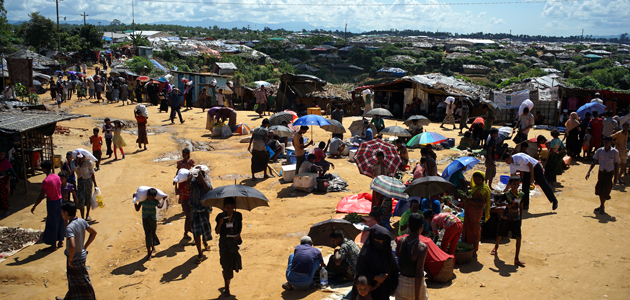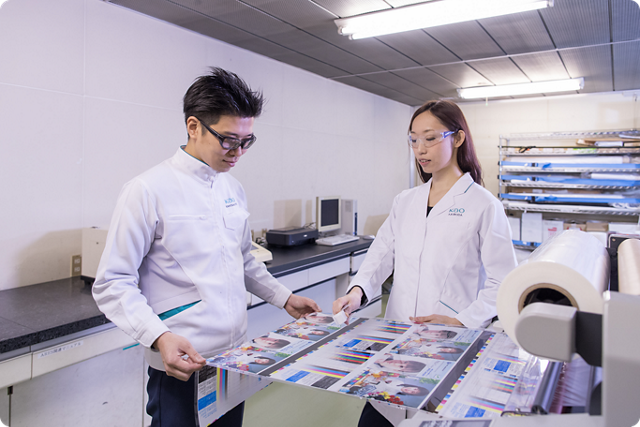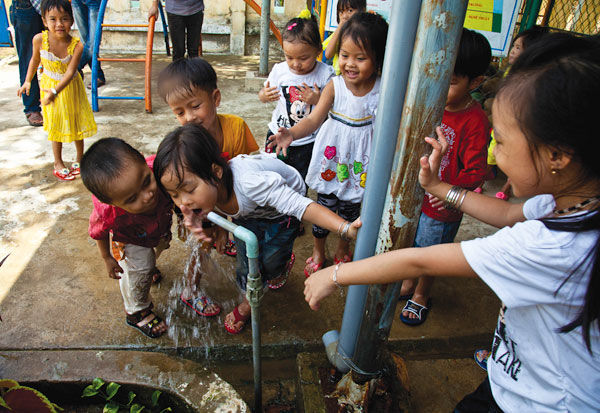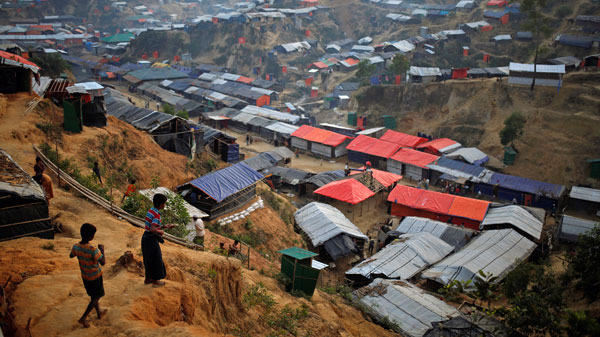News & Updates
04 May 2018
Urgent action is needed to tackle water-related disasters
The final outcome of ‘Making Every Drop Count’, a document put together by the High Level Panel on Water has called for urgent action to address water-related disasters around the globe. 2018 marks the beginning of the International Decade for Action: Water for Sustainable Development. Since 1990 water related disasters...
read more03 May 2018
Drones are connecting rural Nepalese communities to healthcare facilities
Drones are increasingly being used to deliver essential medicines and laboratory samples to and from areas of Nepal. The new technology represents progress in the delivery of medicine and a reduced dependence on road and transport networks. This would be particularly beneficial for rural populations, like those in Nepal. In...
read more02 May 2018
Marginalised people bear the brunt of air pollution
The latest report by the World Health Organisation (WHO) reveals the significant damage air pollution is having across the world, particularly in low income countries. WHO’s estimates reveal that 90% of the global population breathe air containing a high level of pollution and 7 million die each year due to...
read more27 April 2018
IOM is training Rohingya refugees on how to improve their shelter ahead of monsoon season
The UN Migration Agency (IOM) has trained over 40,000 Rohingya on how to upgrade their shelters ahead of monsoon season. In total 100,000 families will receive training, the IOM is also providing upgrade kits containing ropes, tarpaulin and tools. Humanitarian agencies have raised numerous concerns over the threats monsoon season...
read more26 April 2018
Press release: Asia Pacific Leaders Malaria Alliance
Leading Asia Pacific corporations launch consumer-powered movement to end malaria on World Malaria Day A number of Asia’s leading companies and foundations have launched M2030 – focusing the power of millions of consumers on beating the world’s deadliest disease. London, 25 April 2018. A new collaboration has been unveiled today...
read more26 April 2018
Natural disasters could cost Asia $160 billion a year by 2030
The UN has warned of the significant economic damage natural disasters could cause in the Asia Pacific region. In addition, the region has a very low insurance coverage despite regular and devastating natural disasters that have cost approximately $1.3 trillion over the last 50 years. Only 8% of the region’s...
read more24 April 2018
How stoves are tackling health, environment and gender equality issues in Lao DPR
The World Bank, in partnership with the Energy Sector Management Assistance Program (ESMAP), is replacing over 50,000 charcoal and wood burning stoves in Lao PDR. The stoves will be replaced with clean, energy-efficient and smoke free cooking stoves. The first recipients of the stoves will be schools with feeding programmes....
read more19 April 2018
UK Met Office committed to strengthening Asia’s resilience to climate change
The UK Met Office announced a new programme to strengthen climate change resilience in Asia, working in partnership with the World Bank and the UK’s Department for International Development (DFID). The programme was announced at the Commonwealth Heads of Government Meeting (CHOGM) taking place in London this week. The key...
read more17 April 2018
Médecins Sans Frontières open new hospital in Cox’s Bazar as health concerns grow for monsoon season
The hospital, ran by Médecins Sans Frontières, opens as the camp is preparing for its annual monsoon season which has caused significant concern among humanitarian organisations. Monsoon season will increase the risk of flooding and landslides in the region, in addition to raising concerns over healthcare. For example, there is...
read more12 April 2018
Asia needs to step up the fight against hunger, says FAO Director
Governments in Asia must further their commitment to Zero Hunger by focusing on rural poverty reduction and adapting their agricultural sectors due to the threats posed by climate change. General José Graziano da Silva, FAO Director commented: “Countries need to step up their efforts to bring the fight against hunger...
read more11 April 2018
World Bank approves $55 million to support renewable energy projects in rural Bangladesh
The World Bank has approved $55 million to grow clean and renewable energy in rural areas of Bangladesh that is cut off from electricity grids. The funding will be added to the existing Second Rural Electrification and Renewable Energy Development (RERED II) Project and will involve the installation of 1000...
read more10 April 2018
Health concerns grow in Papua New Guinea following earthquake and aftershocks
WHO has raised concerns about the potential for disease earthquakes in Papua New Guinea following a large earthquake in February 2018 and a number of subsequent aftershocks. The initial earthquake struck on 26th February with a magnitude of 7.5. This, combined with hundreds of aftershocks, has resulted in the severe...
read more10 April 2018
IOM, Japan and Bangladesh are working together to bring clean water to Rohingya refugees
The UN Migration Agency (IOM), the Japan International Cooperation Agency (JICA) and Bangladesh’s Department of Public Health Engineering (DPHE) are bringing easily accessible and safe water to 30,000 Rohingya refugees in Cox’s Bazar. IOM, JICA and DPHE have collaborated on a major borehole project which opens this week. It is...
read more10 April 2018
Health concerns grow in Papua New Guinea following earthquake and aftershocks
WHO has raised concerns about the potential for disease earthquakes in Papua New Guinea following a large earthquake in February 2018 and a number of subsequent aftershocks. The initial earthquake struck on 26th February with a magnitude of 7.5. This, combined with hundreds of aftershocks, has resulted in the severe...
read more09 April 2018
Bhutan’s capital is the latest city to join UNISDR’s ‘Making Cities Resilient’ campaign
Thimphu, the capital of Bhutan, is the newest member to join Bhutan’s the United Nations Office for Disaster Risk Reduction (UNISDR) ‘Making Cities Resilient’ campaign. The Making Cities Resilient campaign addresses local governance and urban risk to promote resilience activities, sustainable development and an understanding of disaster risk. The campaign...
read more02 April 2018
Women are leading disaster resilience in Indonesia
Indonesia is particularly vulnerable to natural disasters due to its location in the Pacific Rim of Fire where earthquakes, volcanic eruptions and tsunamis. Each year the Indonesian Government spends between $300-500 million on disaster recovery; over the last 30 years the country has experienced an average of 290 significant natural...
read more29 March 2018
“No single agency can meet the massive health needs” of Rohingya Refugees in Bangladesh, says WHO
Healthcare is a key priority for Rohingya refugees in Bangladesh, with numerous agencies committing to help provide critical healthcare. The World Health Organisation (WHO) has made a further appeal for supporting the needs of 1.3 million Rohingya refugees in Bangladesh as monsoon season nears. In addition to risks from flooding...
read more28 March 2018
Combining sustainability and profitability in Asia
Across Asia a number of companies are beginning to recognise the power of sustainability in driving profits. Some of Asia’s largest multinational corporations have embraced sustainability including Ayala Corporation, Indian IT firm Infosys and South Korean water company Coway. In 2018’s Global 100 Most Sustainable Corporations in the World Index,...
read more22 March 2018
World Water Day – What Threat Does Water Pose to Asia?
March 22nd 2018 marks the 25th Annual World Water Day which aims to highlight the importance of freshwater and advocate for the sustainable management of water resources. Global water use has increased six fold over the past century and continues to grow at a rate of about one percent per...
read more20 March 2018
DFID steps up support for Rohingya refugees as monsoon season looms
The UK’s Department for International Development (DFID) has increased support to Rohingya refugees ahead of monsoon season. Bangladesh’s annual cyclone and monsoon season is fast approaching which poses significant threats to the refugee community living in Cox’s Bazar, Bangladesh. Estimates suggest that almost 1 million people have fled from neighbouring...
read more

